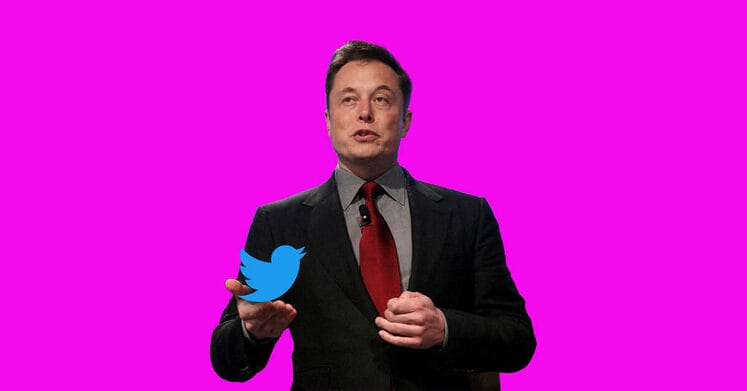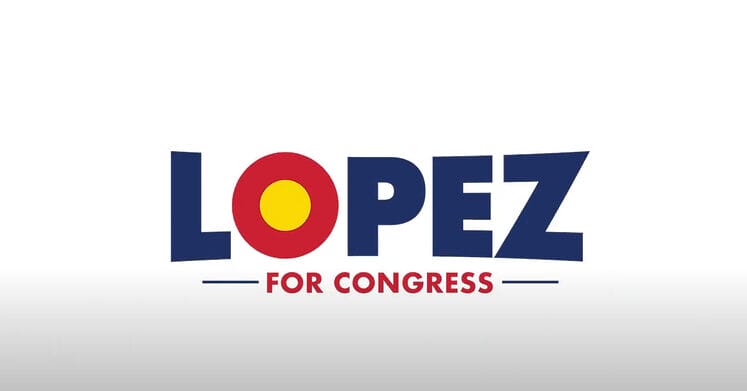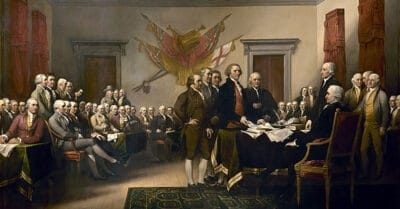The matter of free speech heated up several degrees when multi-billionaire Elon Musk purchased the social media platform, Twitter. Musk says that he spent 43 billion dollars to acquire the business because he wanted to allow for more free speech, not for financial reasons. Twitter famously banned Donald Trump after the January 6 event at the U.S. Capitol and routinely bans or penalizes participants when they violate Twitter’s “community standards.” Musk says he wants a freer environment and would not penalize those who disagree with him—unlike the present policies of Twitter. Critics fear that Musk will make Twitter a safe zone for fascism, hate, an assortment of phobias, and all the rest. What should we make of this?
We first appeal to the First Amendment to the Constitution, since this is the root and anchor of free speech in our country. It also grounds the American dream of making one’s life better through the virtuous use of liberty.
“Congress shall make no law respecting an establishment of religion, or prohibiting the free exercise thereof; or abridging the freedom of speech, or of the press; or the right of the people peaceably to assemble, and to petition the Government for a redress of grievances.”
This glorious Amendment specifically prohibits the civil government from restricting the freedom of speech or the other four freedoms mentioned. It does not ensure that everyone’s freedom of speech be unfettered by other authorities. However, free speech is also part of the American psyche—or at least it was. It is a classically liberal (not modern leftist) view that all voices should be heard and may the best argument win. That is my creed as an American and as a philosopher. Thus, the “marketplace of ideas” is the best place for debate and discussion, and it is a high virtue to be willing to “disagree in an agreeable way.” Consider the British philosopher John Stuart Mill’s (1806-73) famous quote from On Liberty (1859).
“He who knows only his own side of the case, knows little of that. His reasons may be good, and no one may have been able to refute them. But if he is equally unable to refute the reasons on the opposite side; if he does not so much as know what they are, he has no ground for preferring either opinion.”
As of now, it is legal for private enterprises to control the speech of their employees and customers, since they are not part of the civil government. However, that does not mean that it is a good idea. When a gigantic platform such as Twitter ideologically edits out vast amounts of information, this should give us pause. It certainly gave Elon Musk enough pause to buy the company for forty-four billion dollars.
The critics of Musk are worried that he will be irresponsible in the standards set for the new Twitter. He has been insulted and accused of all manner of ills before he has even put his stamp on the company. If Musk allows for a broad range of opinion, he should be commended. Of course, any responsible medium will not allow speech that is pornographic or threatening violence. But allowing a diversity of opinion on matters political and otherwise is healthy.
But not all think so. Some disparage free speech because too much of it is “cheap speech,” which needs to be monitored and regulated by law. Consider this comment about Musk and Twitter published in The New York Times online.
“Unrestricted free speech does not mean it’s a truer version of free speech. It just means you’re making an island and letting the boys run crazy like in ‘Lord of the Flies,’” said Kate Klonick, an assistant professor of law at St. John’s University. “A well-regulated and predictable speech environment is the best for free speech.”
It is hard to believe that Professor Klonick said “well-regulated and predictable,” since free speech in a Republic with democratic representation should be anything but that! Who is going to regulate this speech and why deem them trustworthy? As Richard John Neuhaus, an astute Christian social critic, used to say, “Democracy is a raucous affair,” and it should be. Free speech is a part of that.
The downside of Musk buying Twitter is not, it seems to me, that a billionaire purchased a media giant, but that Twitter itself has so much clout in society. Little genuine debate of any intellectual caliber can take place in such a small literary space online. Twitter can announce events, showcase aphorisms (like those of Thomas Sowell, which I always appreciate), or present jokes quite well. If you want to debate the meaning of the Constitution or argue whether or not God exists, then you need a richer, deeper forum for the exchange of ideas, such as public debates, lectures, books, and thoughtful journal and magazine articles.
Nevertheless, Twitter is here to stay and it has cultural power. As such, it deserves a fresh start.








Responses